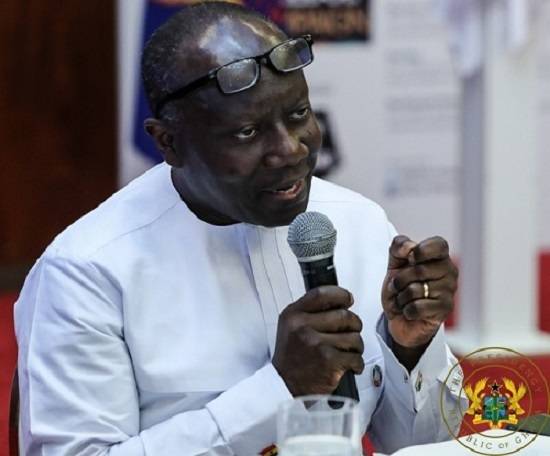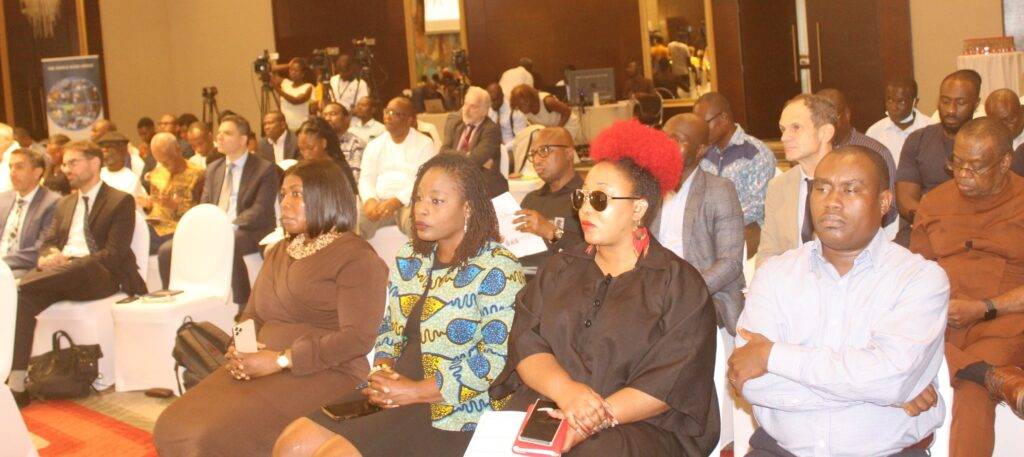
Ghana’s economy is expected to bounce back to its growth potential after 2025, the World Bank has said.
“Growth will further decelerate in the short term (2023-24) before returning to its potential after 2025,” it said in its 7th Ghana Economic Update.

This is contained in a report in the update titled ‘Price Surge: Unravelling Inflation’s Toll on Poverty and Food Security’.
Authored by three economists of the World Bank, Kwabena Gyan Kwakye, economist; Paul Andres Corral Rodas, Senior Economist and David Elmaleh, Senior Economist, the yearly analytical report examined Ghana’s economic development prospects.
This year’s report focused on the impact of inflation on the household and that the country’s economy picked up from the post- COVID-19 growth rate of 0.5 per cent to 5.3 per cent in 2021.
However, it witnessed a sharp decline to 3.1 in 2022 due to the impact of the Russian-Ukraine war.
Ghana’s economy is projected to decelerate to 1.4 per cent and rebound to three per cent in 2024.
“In 2022, a combination of pre-existing imbalances and external shocks brought Ghana into a deep macroeconomic crisis,” the report said.
It said the exchange rate pressures in 2022 “created a negative feedback loop with inflation.”
The report said the fiscal adjustment made by the government in 2022 fell short of their consolidation targets.
It said weak revenue performance and soaring expenditure exacerbated the country’s growing public debt.
Ghana’s public debt rose to about GH¢300 billion and exceeded more than 70 per cent to above the internationally accepted threshold, of its Gross Domestic Product.
That created the need for the government to seek International Monetary Fund bailout support to restore debt and macroeconomic stability.
The World Bank said restoring fiscal debt sustainability, lifting long-term growth, significantly lowering inflation, and rebuilding fiscal and external buffers should receive urgent policy priorities by the government.
It indicated that the increase in the VAT rate from 12.5 per cent to 15 per cent to yield an additional revenue of 0.3 per cent of GDP, removal of the discount policy on import valuation of products and the strengthening of income taxation and increases in excise taxation to increase government as outlined in the 2023 budget was commendable.
The report said the expenditure rationalisation measures such as the limiting of expenditure on public sector wages and goods and services, the integration of public procurement and approval processes with GIFMIS, review of government flagship programmes and capping of transfers of statutory funds would help bring the country back on the path of debt sustainability.
Among other recommendations, the report said government should implement the 2022 Tax Exemption law, intensify efforts to improve tax compliance, clear all outstanding arrears.
It said government should complete the GIFMIS infrastructure and integrate the operations of the Ministries and Agencies, conclude contract re-negotiation with the Independent Power Producers, and operationalise the Financial Sector Stability Fund to mitigate the impact of the Domestic Debt Exchange Programme on financial sector.
“The government should support well-targeted investments to create jobs, lower income inequality and boost productivity, prioritise investment in agricultural research and development and green innovations,” the report stated.
BY KINGSLEY ASARE







